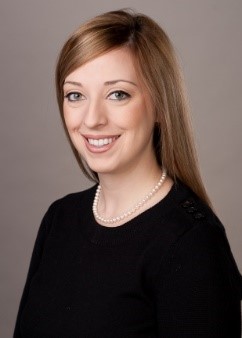- Calls to this hotline are currently being directed to Within Health, Fay or Eating Disorder Solutions
- Representatives are standing by 24/7 to help answer your questions
- All calls are confidential and HIPAA compliant
- There is no obligation or cost to call
- Eating Disorder Hope does not receive any commissions or fees dependent upon which provider you select
- Additional treatment providers are located on our directory or samhsa.gov
Considerations of Inpatient Eating Disorder Care in the Orthodox Jewish Community

No community is immune to eating disorders and the often devastating impact they have on individuals and families. While more research is needed to ascertain the prevalence of eating disorder care in the Orthodox Jewish community, one 2008 Canadian study concluded that adolescent Jewish females appear to be at greater risk for abnormal attitudes and behaviors related to eating, compared with their non-Jewish female peers [1].
Relief Resources is a not-for-profit mental health referral organization serving the Orthodox Jewish community that provides information and referrals to individuals and clinicians. For the past two years, the organization’s Eating Disorders Division processed approximately 200 new patient cases per year, an increase from previous years.
According to the Pew Research Center, there are an estimated 530,000 individuals in the US who identify as Orthodox Jewish [2]. Although Orthodox individuals and families are represented throughout the country, many reside in larger communities near large metro areas.
The powerful benefits of any community are innumerable, including social and emotional support, networking, a sense of belonging, and shared history. One drawback of small communities, however, can be reduced anonymity during personal difficulties, such as an illness.

As in the general population, a stigma surrounds mental health difficulties in Orthodox communities.
Although every individual and family have unique reactions to an eating disorder care in the Orthodox Jewish Community, many choose to exercise discretion in seeking treatment.
There are myriad reasons for this choice, some of which have nothing to do with being Orthodox, such as simply being a more private person.
However, there are specific social considerations Orthodox men and women with an eating disorder may encounter, including the impact of this diagnosis on Shidduchim, or the process of finding a spouse. A mental health diagnosis may negatively impact the process for the individual or their family members.
As reflected in society at large, an unhealthy standard of thinness has impacted this traditional method of dating, creating unrealistic expectations that may contribute to body image disturbances and disordered eating for both men and women.
Considering these potential social ramifications, an inclination toward privacy is understandable. However, it could potentially be dangerous if it leads to postponing treatment and intervention.
Eating disorders are serious illnesses that compromise every organ system in the body and may cause severe emotional disturbance for sufferers. Further, individuals with eating disorders have significantly elevated mortality rates, with the highest rates occurring in those with anorexia nervosa [3].
As such, eating disorders can be a threat to life. Jewish law mandates that illness which poses a threat to life must be treated and takes primary precedence above other rituals and laws. Similar to other serious illnesses, it is important to seek quality eating disorder care in the Orthodox Jewish Community early.
Over the past 24 months, 5 percent of the women and girls who admitted to the Laureate Eating Disorders Program identified as Orthodox Jewish. These patients averaged a length of stay considerably longer than their non-Orthodox peers.
While this phenomenon is with certainty multifactorial, it suggests that these women and girls were more medically or psychiatrically compromised upon admission.

Research indicates that eating disorders become more severe and less receptive to treatment the longer they are untreated [4]. For eating disorders patients, it is important to begin the renourishing process and other symptom interruption quickly. Depending on medical and emotional compromise, treatment may require the inpatient level of care.
Seeking inpatient treatment can be an overwhelming process for any individual or family. Often the treatment center may be far from home, in addition to the financial and emotional impact of a lengthy hospitalization. Orthodox families have additional unique considerations, such as questions about Kashrut and food preparation, or holiday observance.
Shomer negiah (refraining from touching the opposite gender outside of one’s spouse or immediate relatives) or Tzniut (laws of modesty) may be considered if the facility treats both men and women. More generally, and due to the insular nature of some Orthodox communities, there may be apprehension about socializing with individuals outside the faith.
Realistically, there can be challenges Orthodox families and patients face during an inpatient hospitalization. There is a wide spectrum of religious observance within the Orthodox umbrella, varying from Modern Orthodox to ultra-Orthodox communities.
Speaking directly and honestly with treatment program intake staff and one’s Rabbi can help establish expectations about the inpatient experience. Below are questions that may assist families in assessing eating disorder care in the Orthodox Jewish Community and treatment program options:
- What type of cultural competency training have clinical and culinary staff completed in treating Orthodox patients?
- Is a culinary or clinical representative available to discuss specific questions or concerns?
- Is the local Orthodox community a resource for patients during their hospital stay?
- What type of therapeutic experiences are available regarding Shabbat and holidays?
- Are there currently other Orthodox patients being treated?
 Although privacy laws and good ethical practice prohibit disclosing detailed information about other patients, staff may be able to answer if another Orthodox person is currently in treatment.
Although privacy laws and good ethical practice prohibit disclosing detailed information about other patients, staff may be able to answer if another Orthodox person is currently in treatment.
There are both positive and negative implications of concurrent treatment, with one drawback being reduced anonymity within the community. However, one Orthodox woman who completed inpatient treatment with an Orthodox peer reported she felt immediate relief upon meeting her and being a part of the same small therapeutic cohort.
She said it was a source of cultural and spiritual camaraderie and accountability and that holidays and traditions were more enjoyable and meaningful, as they were in treatment during Pesach (Passover).
There are many unanswered questions about the seemingly increasing impact of eating disorders within the Orthodox community. While the nuances of Orthodox life may make an eating disorder hospitalization seem daunting, navigating this process with informed clinicians, programs and community resources may lead to a smoother path to recovery and wellness.
About the Author:

Heather Binkley Morrow, MS – Director of Operations – Laureate Eating Disorders Program
Heather Binkley Morrow earned her undergraduate degree in journalism from Oklahoma State University before completing her Master of Science in Healthcare Administration from Oklahoma State University Center for Health Sciences. Heather is particularly thankful for the innumerable relationships she has established across the country with eating disorders professionals.
Reviewed By:
 Devorah Levinson is a referral specialist and the director of eating disorders division at Relief Resources, a non-profit organization providing mental health referral services that cater to the needs of the Orthodox Jewish community. Devorah has a strong background in communal work in both the United States and abroad. Her role at Relief Resources is to provide mental health referrals and information to families and patients, and she serves as a conduit to appropriate and effective care. Her work consists of researching new clinicians, facilities, and treatment options as well as promoting cultural sensitivity and competency to clinicians who have little or no experience with Orthodox Jewish patients. She presents on the topics of mental health and eating disorders in the Jewish community at schools and hospitals. Devorah has contributed articles for several national eating disorders-focused organizations or publications and has a strong focus on eating disorder prevention.
Devorah Levinson is a referral specialist and the director of eating disorders division at Relief Resources, a non-profit organization providing mental health referral services that cater to the needs of the Orthodox Jewish community. Devorah has a strong background in communal work in both the United States and abroad. Her role at Relief Resources is to provide mental health referrals and information to families and patients, and she serves as a conduit to appropriate and effective care. Her work consists of researching new clinicians, facilities, and treatment options as well as promoting cultural sensitivity and competency to clinicians who have little or no experience with Orthodox Jewish patients. She presents on the topics of mental health and eating disorders in the Jewish community at schools and hospitals. Devorah has contributed articles for several national eating disorders-focused organizations or publications and has a strong focus on eating disorder prevention.
Sources:
[1] Pinhas, L., MD, FRCPC, Heinmaa, M., PhD, CPsych, Bryden, P., MD, FRCPC, Bradley, S., MD, FRCPC, & Toner, B., PhD, CPsych. (2008). Disordered Eating in Jewish Adolescent Girls [Abstract]. The Canadian Journal of Psychiatry,53(9), 601-608.[2] A Portrait of Jewish Americans(Rep.). (2013, October 1). Retrieved http://www.pewforum.org/2013/10/01/chapter-1-population-estimates/
[3] Arcelus, J. (2011). Mortality Rates in Patients With Anorexia Nervosa and Other Eating Disorders [Abstract]. Archives of General Psychiatry,68(7), 724. doi:10.1001/archgenpsychiatry.2011.74
[4] Fichter M, Quadflieg N, Hedlund S. Twelve-year course and outcome predictors of anorexia nervosa. Int J Eat Disord. 2006;39:87–100.
The opinions and views of our guest contributors are shared to provide a broad perspective of eating disorders. These are not necessarily the views of Eating Disorder Hope, but an effort to offer a discussion of various issues by different concerned individuals.
We at Eating Disorder Hope understand that eating disorders result from a combination of environmental and genetic factors. If you or a loved one are suffering from an eating disorder, please know that there is hope for you, and seek immediate professional help.
Updated with video presentation 10.22.19. Originally Published on September 5, 2018.
Reviewed & Approved on September 5, 2018, by Jacquelyn Ekern, MS, LPC
Published on EatingDisorderHope.com

The EatingDisorderHope.com editorial team comprises experienced writers, editors, and medical reviewers specializing in eating disorders, treatment, and mental and behavioral health.

